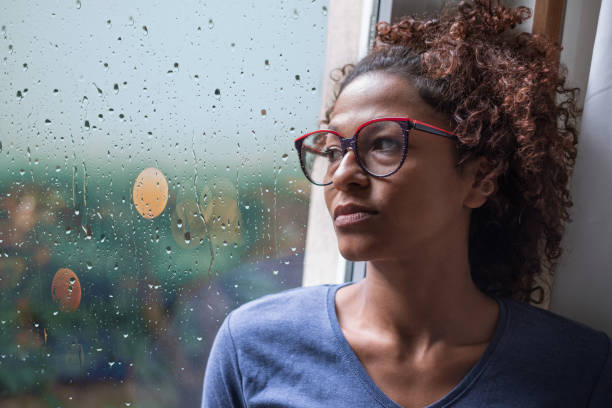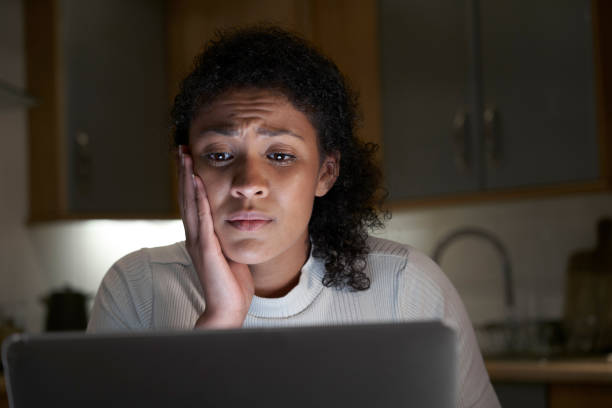
Managing Mental Health During Quarantine
For those struggling with their mental health already, the social distancing/quarantine as it relates to the COVID-19 pandemic can make a bad situation an awful situation. For many, the sources of their mental health issues stem from family relationship issues and being quarantined inside a home with those triggers may worsen it. Additionally, people without prior mental health concerns are struggling with anxiety about the future, worries about work, homeschooling, and finances.
Employment and Mental Health
 In a capitalist society, we often equate our productivity with our value in society, which can be harmful under normal circumstances, but especially damaging under federal recommendations to cease working unless it is essential. David D. Burns, author of Feeling Good and professor emeritus at the Stanford University School of Medicine, writes that “worth as a human being proportional to what you have achieved in life” is a core belief of Western culture, but it is “self-defeating, grossly inaccurate, and misleading”. During a time like now, how does one go about detaching their self-worth from their productivity?
In a capitalist society, we often equate our productivity with our value in society, which can be harmful under normal circumstances, but especially damaging under federal recommendations to cease working unless it is essential. David D. Burns, author of Feeling Good and professor emeritus at the Stanford University School of Medicine, writes that “worth as a human being proportional to what you have achieved in life” is a core belief of Western culture, but it is “self-defeating, grossly inaccurate, and misleading”. During a time like now, how does one go about detaching their self-worth from their productivity?
71% of Americans work in service industries, which are being hit especially hard economically by the COVID-19 response, and nearly 40% of American adults wouldn’t be able to cover a $400 emergency with cash, savings, or credit. These statistics show just how necessary it is to simply have employment during a time like this.
When being employed pays your bills, provides a sense of purpose, promotes independence, and allows you to develop social contacts, what is a recently furloughed worker to do during this time? It’s not a normal scenario, where a worker can lose a job but continue to seek out employment. Many businesses have been forced to close their doors and lay off workers, so it’s not like one can just keep applying and find somewhere to work as easily as before (it wasn’t easy to find work before!) How do these Americans, who were already living on the brink, manage their mental health during a worst- case scenario?
The Drawbacks of Social Distancing
 A lack of income is the most obvious side effect of self-quarantine, but there’s also the term “social distancing” to unpack. The term refers to limiting social contact with others, so you do not infect anyone else with COVID-19. However, it’s been established already what loneliness or isolation can do to one’s physical and mental health. In these times, many people are filling that social gap with social media, which comes with its own set of risks. Studies have shown that those who spent more time on social media were more likely to experience social anxiety and were nearly 3x more likely to feel isolated than those who spent the least time on social media. Add in all the misinformation and outright lies popping up on social media, and this becomes a very scary time to seek information.
A lack of income is the most obvious side effect of self-quarantine, but there’s also the term “social distancing” to unpack. The term refers to limiting social contact with others, so you do not infect anyone else with COVID-19. However, it’s been established already what loneliness or isolation can do to one’s physical and mental health. In these times, many people are filling that social gap with social media, which comes with its own set of risks. Studies have shown that those who spent more time on social media were more likely to experience social anxiety and were nearly 3x more likely to feel isolated than those who spent the least time on social media. Add in all the misinformation and outright lies popping up on social media, and this becomes a very scary time to seek information.
The messaging surrounding COVID-19 has already increased collective anxiety, and combined with social media, this could be a recipe for mental distress. Another thought to consider is if social cohesion will recover after the pandemic has passed. Will 100% of Americans go back to socializing, or have we made a permanent shift towards reclusiveness or social distancing?
Disturbance of Routines
 Another underrated drawback of social distancing is the disturbance of routines. For those struggling with their mental health, routines can be stabilizing.
Another underrated drawback of social distancing is the disturbance of routines. For those struggling with their mental health, routines can be stabilizing.
A routine reduces stress by making life appear more predictable and controllable, but those two terms are the antithesis of an infectious pandemic. During a time like this, predictability and control go out the window, and we all are at the whim of nature and the government.
With a drastic change in one’s routine, it’s crucial that new routines are quickly created and implemented to maintain some semblance of normalcy. Humans have often been known as a species that does not cope well with change, and what bigger change is there than being forced into the house and/or being forced into unemployment indefinitely through no fault of your own? Routines are known to “anchor” us in the sense that we know how our day will play out (to a degree). Even if you have a terrible day at work, you may know you’re going to the gym to relieve some stress, pick up some good food on the way home, and spend time with your family.
In a time like now, that routine gets upended and the entire day becomes a question mark. How will I pay my bills? Just a week ago, there was a definitive answer to that question. How will my children handle being quarantined? What if one of my family members (who isn’t quarantined with you) needs help? The disturbance of routines has created considerable anxiety around what will happen next and
Keeping A Level Head Through Quarantine:
- Re-create (or create a new) routine. Add home exercises into it.
- Limit exposure to misinformation / things that will disturb your peace. This may be social media, or even other people. Set up your “safe spaces”.
- Make your mental health a priority; if you can not accomplish needed tasks as you hoped, be flexible and be kind to yourself.
- Remain connected to others and remain connected to the rest of the world. It’s very tempting to isolate entirely and cut oneself off (easier to cut everyone off rather than re-evaluating sources of info/stress).
- Re-connect with those you previously “didn’t have the time for”. You’ve got the time now. Call your grandmother or that college roommate who you haven’t spoken to in 10 months.
- Americans are NOT sleeping well. Now is a good time to catch up on sleep when possible.
- You will have a significant amount of time on your hands. Finding something to do with that time that feels meaningful; clean closets, color, paint, cook, do exercise video, meditation.
- Be grateful for what you have. Reach out to those who are scared or alone and remember, that there is someone you can help.
- Listen to music! Play music if you can.
 Spend time with your pets if you have them. They are happy you are home.
Spend time with your pets if you have them. They are happy you are home.


Join the Conversation